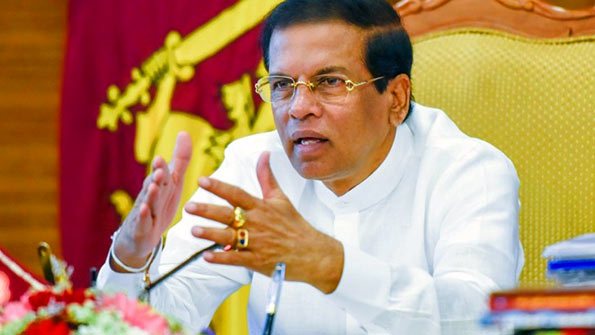Colombo: Sri Lankan President Maithripala Sirisena unveiled a new Cabinet Thursday, days after Ranil Wickremesinghe was reinstated as Prime Minister in a move that ended a nearly two-month-long political impasse that erupted after his surprising dismissal.
The 29 Ministers chosen by Wickremesinghe, who is also the leader of the United National Party (UNP), were sworn in before Sirisena at the Presidential Secretariat here after which the new Cabinet held its first meeting, according to a statement by the Presidential Press Department.
Sirisena, who triggered a constitutional crisis October 26 when he replaced Wickremesinghe with former President Mahinda Rajapaksa, retained the Defence portfolio, raising the total number of Ministers to 30, Efe news reported.
Out of the 30 Ministers, 29 were from the ruling United National Front (UNF) alliance which includes the UNP.
Some of the key ministers included Mangala Samaraweera from the UNP who was appointed as the Minister of Finance and Media, while UNP MP Sagala Ratnayaka took over as the Minister of Ports, Shipping and Southern Development.
Wickremesinghe was also appointed as the Minister of National Polices, Economic Affairs, Resettlement and Rehabilitation, Northern Province Development, Vocational Training and Skills Development and Youth Affairs.
UNP MP John Amaratunga was given the portfolio of Tourism Development, Wildlife and Christian Religious Affairs. UNF MP Rajitha Senaratne took over as the Minister of Health and Indigenous Medicine and UNP MP Malik Samarawickrama as Minister of Development Strategies, International Trade, Science, Technology and Research.
Wickremesinghe must approve a budget for the next three months to avoid the government shutting down as Parliament was unable to pass a budget for 2019 because of the political instability.
Sirisena had suspended Parliament after appointing Rajapaksa but dissolved the House and called new elections when he realized that he would not get the necessary parliamentary support for the appointment.
The Supreme Court November 13 overruled the dissolution of Parliament and later declared it unconstitutional, leading to Rajapaksa’s resignation as Prime Minister last week and facilitating the return of Wickremesinghe to his position.
IANS
